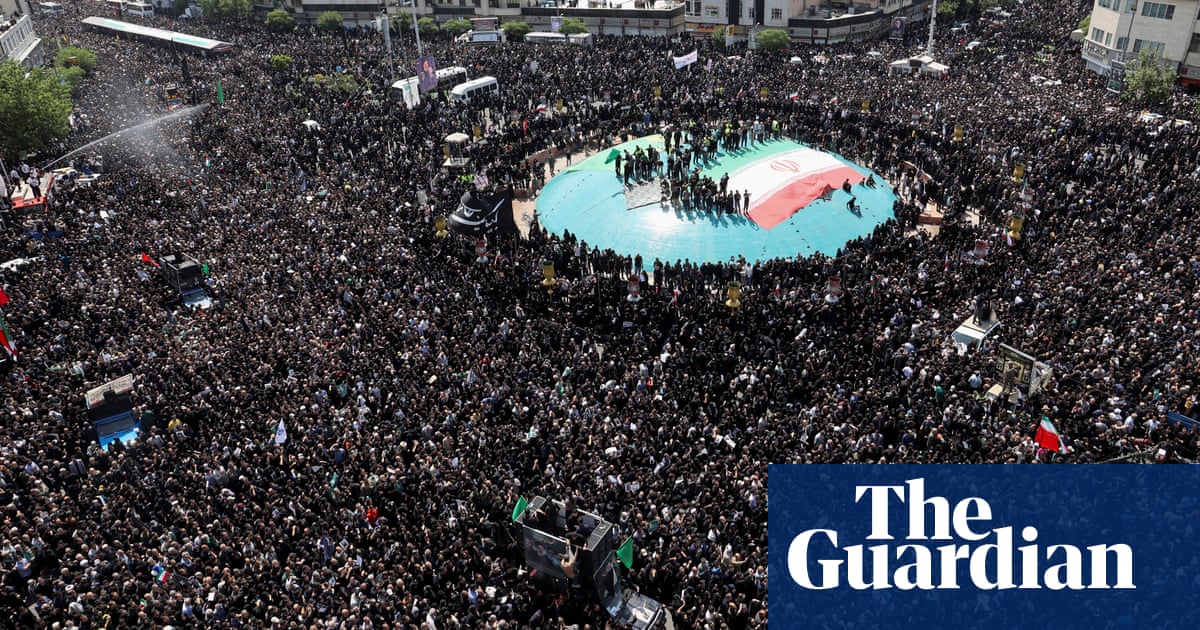
Deportation of Bashir Biazar, reportedly a former senior figure in state television in Iran, frustrated Paris-based activists who last month filed a torture complaint against him
Case has emerged at a time of heightened tensions between Paris and Tehran, with three French citizens — described by France as ‘state hostages’ — still imprisoned in Iran
PARIS: France on Wednesday expelled an Iranian suspected of influence peddling on behalf of the Islamic republic and having links to the Revolutionary Guards ideological army, his lawyer and Iranian officials said.
The deportation of Bashir Biazar, reportedly a former senior figure in state television in Iran, frustrated Paris-based activists who last month filed a torture complaint against him.
Biazar had been held in administrative detention since the start of June and was subject to a deportation order from the French interior ministry.
Mohammad Mahdi Rahimi, the head of public relations for the office of the Iranian president, wrote on X that Biazar “has been released and is on his way back to his homeland.”
He said Biazar had been “illegally arrested and imprisoned in France a few weeks ago.”
But a representative of the French interior ministry, speaking at a hearing earlier Wednesday, said Biazar was an “agent of influence, an agitator who promotes the views of the Islamic Republic of Iran and, more worryingly, harasses opponents of the regime.”
The representative accused Biazar of filming journalists from Iranian opposition media in September in front of the Iranian consulate in Paris after an arson attack on the building.
French authorities also accused him of posting messages on social networks in connection with the war between Israel and the Palestinian militant group Hamas in Gaza in which he denounced “Zionist dogs.”
During the hearing, his lawyer Rachid Lemoudaa said that the expulsion order was based on “assumptions” and that his client’s comments fell within the scope of “freedom of expression.”
“I have never been made aware of any threat whatsoever” posed by Biazar, he added.
Biazar has been described by the London-based Iran International television channel as a former official for Iranian state broadcaster IRIB.
Iranian state media have described him as a “cultural figure.”
The case has emerged at a time of heightened tensions between Paris and Tehran, with three French citizens — described by France as “state hostages” — still imprisoned in Iran.
A fourth French detainee, Louis Arnaud, held in Iran since September 2022, was suddenly released last month.
Activist group Iran Justice and victims of human rights violations filed the torture complaint against Biazar last month in Paris.
It accuses Biazar of complicity in torture due to his past work with IRIB, describing him as a former director of production there.
The complaint referred to the regular broadcasts by Iranian state television of statements by — and even interviews with — Iranian or foreign prisoners, which activists regard as forced confessions.
“It is incomprehensible... that no legal proceedings have been initiated” against Biazar, Chirinne Ardakani, the Paris-based lawyer behind the complaint, told AFP.
She said there were “serious indications” implicating Biazar “in the production, recording and broadcasting of forced confessions obtained clearly under torture.”
“Nothing is clear in this case,” she added.
The French citizens still held in Iran are Cecile Kohler, a teacher, and her partner Jacques Paris, detained since May 2022, and another man identified only as Olivier.
Kohler appeared on Iranian television in October 2022 giving comments activists said amounted to a forced confession.
Amnesty International describes Kohler as “arbitrarily detained... amidst mounting evidence Iran’s authorities are holding her hostage to compel specific action(s) by French authorities.”
Meanwhile, Sweden last month released Hamid Noury, a former Iranian official it had jailed over the 1988 mass executions of dissidents in Iran, in exchange for two Swedes jailed in the Islamic republic.
The exchange was bitterly criticized by campaigners who had fought for Noury to be bought to justice under the principle of universal jurisdiction, and by the family of Swedish citizen Ahmadreza Jalali, who faces the death penalty in Iran and was not included in the deal.












